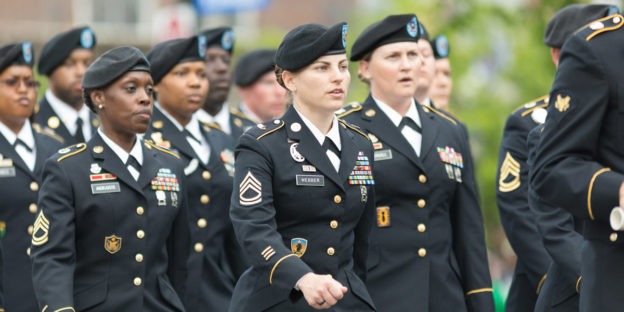TRICARE was earlier known as the Civilian Health and Medical Program of the Uniformed Services. It is essentially an addendum to the healthcare program for military veterans and their families. In the year 2017, TRICARE made significant amendments to their program to which extended to coverage of additions. This expansion in the insurance coverage is inclusive of opioid addition along with other issues caused by various drug abuse. Alcohol and drug abuse has always been a constant challenge for members of the United States military and these modifications are a welcome support to retired service members who may be tackling addiction. The area which TRICARE covers is inclusive of but not limited to are; family therapy, detoxification programs, residential treatment, etc.
As of 2017, women in the armed forces contribute to 16% of the United States Military. Though it is not a large representation, women in service continue to endure challenges and obstacles much more than men in military.
Women in military (also men!) have to endure many hardships during their deployment causing trauma and then leading to PTSD (Post Traumatic Stress Disorder). Often in such cases the tendencies to self medicate with alcohol and drugs as a way to cope when going back into civilian life. This transition itself often adds pressure and causes depression & anxiety. As reported by PTSD United, 70% of adults in the US Military have encountered at least one traumatic experience during their lives, with military veterans especially more vulnerable. 20% of the military personnel who were deputed to Iraq and Afghanistan returned with PTSD and/or issues of depression & anxiety (Magali Haas, MD) The number of cases for women military veterans seeking treatment for substance abuse (alcohol, cocaine, marijuana, and other opiates) has been increasing steadily given the nonpareil circumstances they are often subjected to. Research suggests that they are two times more inclined to develop PTSD, and other psychological issues as compared to men. These disorders often lead to high rates of various other problems (cardiovascular diseases, trauma due to sexual violence etc.) are also known as co-occurring disorders. Some of the examples of trauma experienced by women veterans are sexual trauma, military sexual trauma (i.e. assault & harassment encountered during military training, tours, military spouse). Traumatized women military veterans are five times more likely to attempt suicide than women in a non-military environ. There is no doubt that military veterans, especially women in the military, require access to adequate mental & physical healthcare.
The Ho Tai Way is connected to the Tricare military insurance. It accepts women military veterans as well as spouses/partners of military men. It is an ideal fit for women in military (and spouses of men in military), because it encompasses mostly all areas of addiction and trauma in a residential setting and will address complete needs of the individual to make a full recovery. Dr. Serena Gupta who has dedicated her life to mental health treatment champions the residential program at the Ho Tai Way treatment center in Costa Mesa, California.
References:









